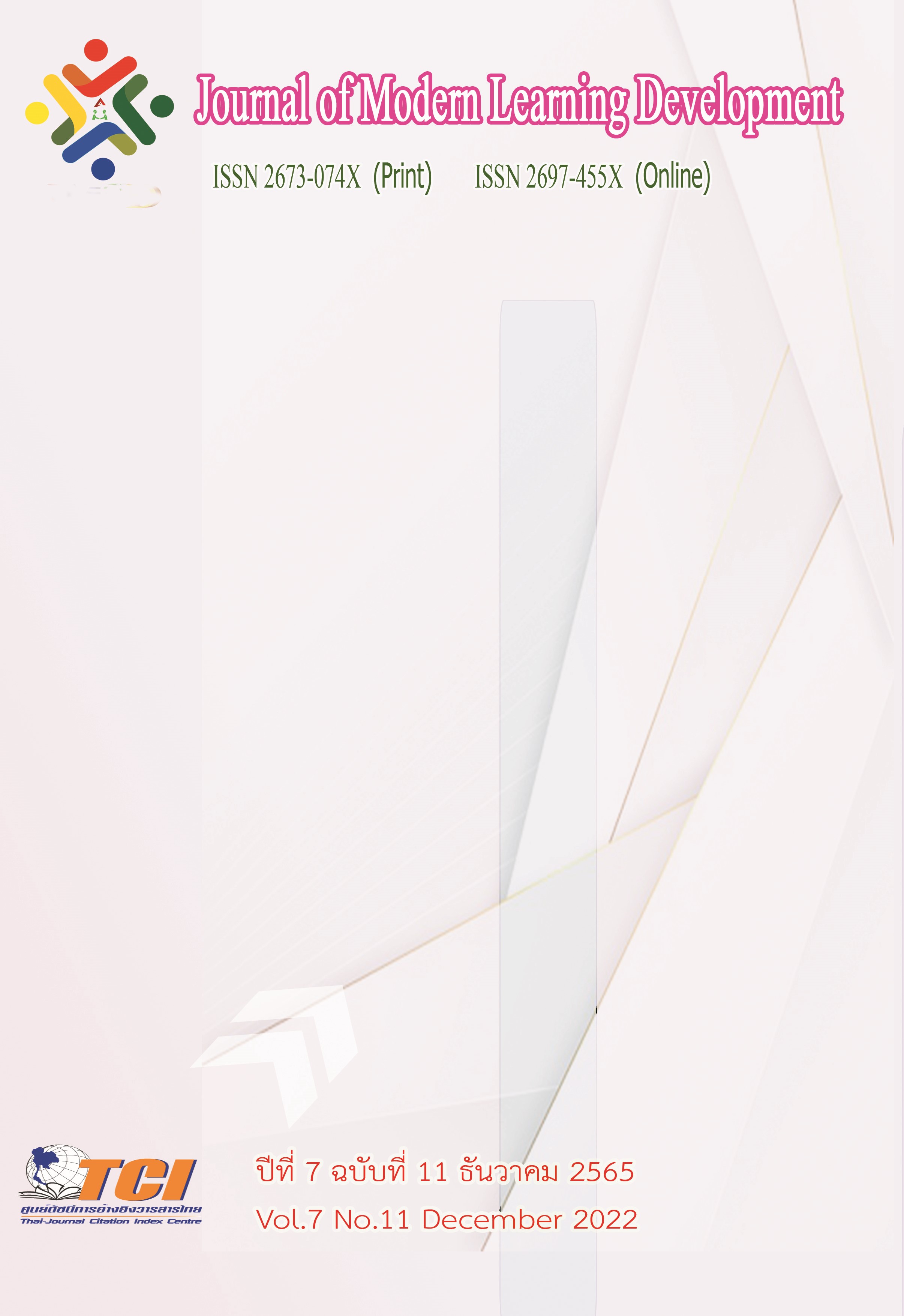Study on the Influence of Employees’ Information Literacy on Innovative Behavior
Main Article Content
บทคัดย่อ
In today’s information age, information literacy has a very important impact on individuals and organizations. Many enterprises have obtained a certain amount of data and information, but they may not be able to make good use of this information and bring innovation. Whether information literacy can promote innovative behavior and how to affect innovative behavior are very worthy of discussion. This study holds that information literacy may impact innovative behavior through creative self-efficacy. Therefore, this study takes employees’ information literacy as an independent variable, creative self-efficacy as an intermediary variable, and employees’ innovative behavior as a dependent variable to explore the relationship among the three. The statistical results show that the four dimensions of information literacy have a significant positive impact on innovative behavior; the three dimensions namely information consciousness, information ability and information ethics have significant positive impacts on creative self-efficacy, while information knowledge has no significant impact on creative self-efficacy; employees’ creative self-efficacy has a significant positive impact on innovative behavior; creative self-efficacy mediates the relationship between employees’ information literacy and innovative behavior. Enterprises should attach importance to the training and guidance of employees from different aspects of information literacy, so as to more effectively stimulate employees’ innovative behavior and improve the innovation performance of enterprises as a whole.
Article Details
เอกสารอ้างอิง
Amabile T. M. (1997). Motivating creativity in organizations: On doing what you love and what you do. California Management Review. 40 (1), 39-58.
Bandura, A. (1977). Self-efficacy: Toward a unifying theory of behavioral change. Psychological Review. 84 (2), 191-215
George J. M. & Zhou J. (2002). Understanding when bad moods foster creativity and good ones don’t: The role of context and clarity of feelings. Journal of Applied Psychology, 87, 687–697.
Kleysen, R. F. & Street, C. (2001). Toward a multi-dimensional measure of individual innovative behavior. Journal of Intellectual Capital. 2 (3), 284-296.
Liang, T. (2012). Gaoxiao fudaoyuan shengrenli, ziwo xiaonenggan yu gongzuo jixiaode guanxi yanjiu [Liang Tao (2012). Research on the relationship between College Counselors' competence, self - efficacy and job performance. Doctoral thesis, College: Wuhan University]
Lv. Q. Y., Liu, X. W. (2008). Guoneiwai xinxi sushi gainian de jieding [Definition of the concept of information literacy at home and abroad, Hebei Science and Technology Library. (2), 40-42]
Scott, S. G. & Bruce, R. A. (1994). Determinates of innovative behavior: A path model of individual innovation in the workplace. Academy of Management Journal. 37 (3) , 580-607.
Suo, X. M. (2018). Minzu yuanxiao shaoshu minzu daxuesheng xinxi suyang yingxiang yinsu yanjiu [Research on the influencing factors of information literacy of ethnic minority college students. Doctoral dissertation, College: Central University for Nationalities]
West, M. A & Farr, J. (1989). Innovation at work: Psychological perspectives. Social Behavior. (4), 15-30.
Yang, J.(2011). Zuzhi chuangxin guli dui yuangong chuangzaoli de yingxiang: juese renting he xiaoneng xinnian de zhongjie zuoyong [The influence of organizational innovation encouragement on employee creativity: the mediating effect of role identity and efficacy belief, Doctoral dissertation, College: Nanjing University]
Zhong, Z. X. (2013). Mianxiang zhongshen xuexi: xinxi suyang de neihan, yanjin yu biaozhun [Facing lifelong learning: the connotation, evolution and standard of information literacy, China Distance Education. (8), 21-29+95]
Zhu, Y. W. (2013). Zhishixing yuangong xinxi suyang yu gongzuo jixiao guanxi yanjiu [Research on the relationship between information literacy and job performance of knowledge workers. Modern Intelligence. 33 (02),117-120.]
Zhang, J. (2014). Yanjiusheng xinxi suyang dui keyan chuangxin nengli de yingxiang yanjiu [Research on the influence of postgraduates’ information literacy on research innovation ability, Master dissertation, College: Fuzhou University]


